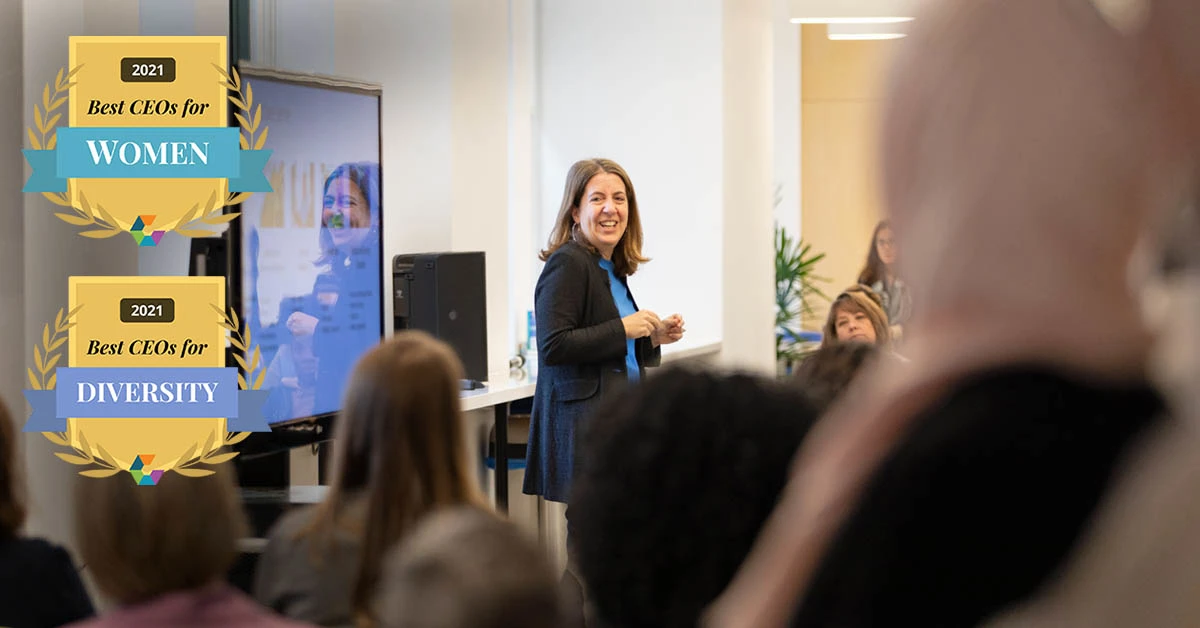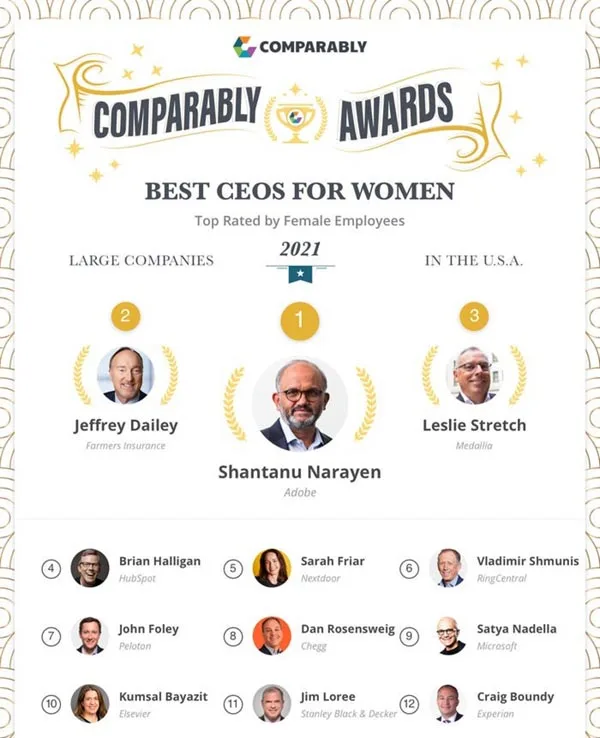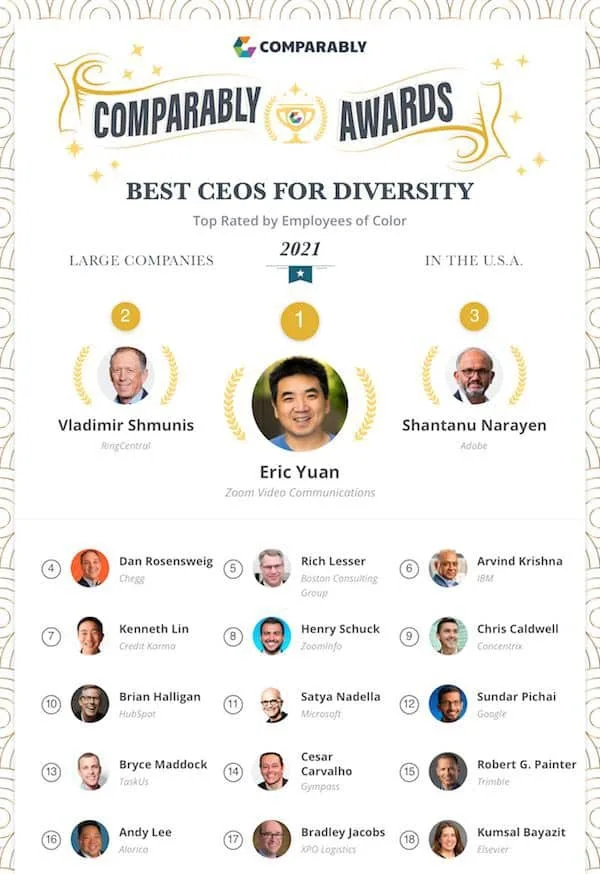Elsevier’s Kumsal Bayazit named one of Best CEOs for Women and Diversity
July 13, 2021
By Ian Evans

Comparably names Elsevier CEO Kumsal Bayazit to Top 10 Best CEOs for Women, per employee surveys. Elsevier CEO Kumsal Bayazit gives a townhall in Elsevier’s New York City office. She ranked 10th among Comparably's Best CEOs for Women and 18th among Best CEOs for Diversity, per employee surveys. (Photo by Alison Bert)
Elsevier CEO Kumsal Bayazit has been named among the Top 10 Best CEOs for Women(opens in new tab/window) for large companies and one of the Best CEOs for Diversity(opens in new tab/window) in the 2021 Comparably Awards.
Comparably is one of the fastest-growing compensation, culture and career monitoring sites in the United States. The awards showcase the leaders and leadership teams who are driving positive culture change across companies large and small.
The ratings are based solely on employee sentiment and recognize the top-rated companies and CEOs in each category. The Best CEOs for Women category is based on how female employees rate their CEO, and the Best CEO for Diversity category is based on how employees of color rate their CEO.
Kumsal Bayazit ranked 10th among Best CEOs for Women.

Kumsal ranked 18th among Best CEOs for Diversity.

On a recent podcast, Kumsal emphasized the importance of inclusion and diversity — and why it’s important to put inclusion first as a way of driving diversity. She explained:
There’s mounting evidence that shows diverse teams drive better progress. And that’s important. But what is more important is to do what’s right. And I think it’s critical that people feel comfortable in their own skin and have equal opportunity to progress in any environment and community. …
We have to give credit to our Head of Inclusion and Diversity here because he has educated all of us on this. Diversity is an output and inclusion is the input. So that’s why you start with inclusion, which leads to diversity.
In her keynote speech at the international Gender Summit in April, where Kumsal summarized some of the ways Elsevier was helping to build a more inclusive environment in research and health:
At Elsevier, our editorial boards are working to actively integrate more early career researchers into the pool of candidates for editorial board service. We also host around 50 scientific conferences per year. By engaging with the researcher community, we have been able to raise the proportion of women speakers at our conferences from 15% in 2016 to 40% today. Our commitment is, of course, to reach and sustain parity.
With the Elsevier Foundation, we also work on raising the visibility of and opportunities for women scientists in developing countries through our awards program with the Organization for Women in Science for the Developing World (OWSD). For more than a decade, we have recognized 45 women scientists from 20 low-income countries to highlight their achievements, their contributions to SDG research and their incredible resilience in the face of adversity.
Kumsal, who co-chairs Elsevier’s Inclusion & Diversity Advisory Board, also noted how the business was working closely with the new European Commission-funding MindTheGEPs program(opens in new tab/window). She explained how Elsevier colleagues are working with universities and research centers in Italy, Spain, Ireland, Poland, Serbia, Sweden and the Netherlands to reduce gender imbalances in European research institutions and generate data to support the development of national and European policy for gender equality in research performing organizations:
As an information analytics provider, we can help shape a data-driven approach with our longstanding contributions to mapping gender onto the research landscape.
This approach is reflected internally. Elsevier has more than 35 Employee Resource Groups (ERGs) focused on our five diversity dimensions:
Race and Ethnicity
Gender Equity
LGBTQ+ and Gender Identity
Disability (Elsevier Enabled)
Generations
Contributor

IE